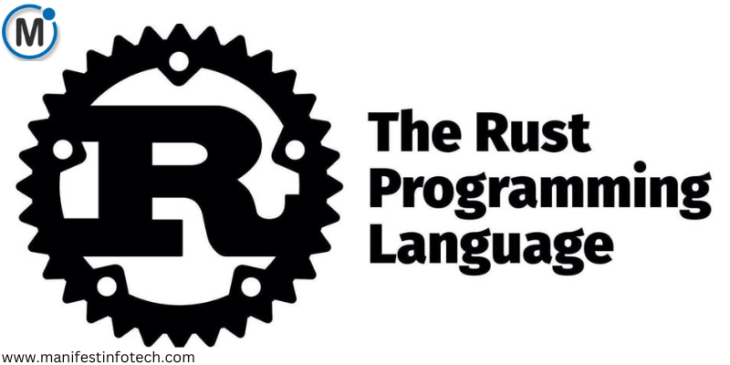
Rust has emerged as one of the most trending programming languages, gaining popularity for its performance, safety, and concurrency features. Designed to prevent memory safety issues while delivering efficiency comparable to C and C++, Rust has become a preferred choice for system programming, web development, game development, and more. Let’s explore how Rust is revolutionizing various fields.
Rust for System-Level Programming
Rust is widely used in system-level programming due to its memory safety and zero-cost abstractions. Unlike C and C++, Rust eliminates common bugs such as buffer overflows and dangling pointers through its ownership model. It is extensively used in operating systems (like Redox OS), embedded systems, and networking applications. Rust’s ability to deliver low-level control without compromising security makes it ideal for high-performance system software.
Rust in Web Development (WASM, Axum, Rocket)
Rust is making strides in web development with frameworks like Rocket and Axum, offering fast and secure back-end solutions. Additionally, WebAssembly (WASM) allows Rust code to run efficiently in browsers, enabling developers to create high-performance web applications. The combination of Rust and WASM ensures near-native speed, making it a great alternative to JavaScript-heavy applications. With its strong type system and memory safety, Rust provides a solid foundation for building secure web services.
Rust for Game Development with Bevy
Game development in Rust is gaining traction, thanks to the Bevy engine. Unlike traditional game engines, Bevy is designed with data-oriented programming and parallelism, allowing developers to build games that fully utilize modern multi-core processors. Rust’s memory safety guarantees fewer crashes and bugs, providing a more stable development experience. The Bevy framework, combined with Rust’s performance capabilities, is an exciting choice for both indie and AAA game development.
Rust vs. C++ in Performance-Critical Applications
Rust and C++ are often compared in performance-critical applications, such as high-frequency trading, real-time systems, and game engines. While both languages offer low-level control, Rust’s key advantage lies in memory safety without garbage collection. This reduces runtime overhead while preventing undefined behavior. Although C++ has a larger ecosystem and more mature tooling, Rust’s safer design is leading many developers to switch for security-critical applications.
Secure Coding with Rust
Rust is memory-safe by design, eliminating entire classes of vulnerabilities like null pointer dereferencing and data races. It enforces strict ownership rules, preventing unauthorized memory access. This makes Rust an excellent choice for writing secure applications, including cryptographic software, financial systems, and cybersecurity tools. Many organizations, including Mozilla and Microsoft, are adopting Rust to build safer software with fewer security risks.
Conclusion
Rust is rapidly becoming a top choice for developers looking for a high-performance, secure, and reliable programming language. Whether it’s system programming, web development, game development, or security-critical applications, Rust offers unparalleled benefits. As more companies invest in Rust, its ecosystem will continue to grow, solidifying its place as a key language for modern development.
If you are looking for any services related to Website Development, App Development, Digital Marketing and SEO, just email us at nchouksey@manifestinfotech.com or Skype id: live:76bad32bff24d30d
𝐅𝐨𝐥𝐥𝐨𝐰 𝐔𝐬:
𝐋𝐢𝐧𝐤𝐞𝐝𝐢𝐧: linkedin.com/company/manifestinfotech
𝐅𝐚𝐜𝐞𝐛𝐨𝐨𝐤: facebook.com/manifestinfotech/
𝐈𝐧𝐬𝐭𝐚𝐠𝐫𝐚𝐦: instagram.com/manifestinfotech/
𝐓𝐰𝐢𝐭𝐭𝐞𝐫: twitter.com/Manifest_info
#RustLang #WebDevelopment #GameDevelopment #SystemProgramming #CyberSecurity #WASM #Axum #Rocket #Bevy